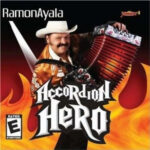Twenty One Pilots’ hit song “Stressed Out” resonated deeply with audiences worldwide upon its release, and its themes of nostalgia, lost innocence, and the pressures of adulthood continue to strike a chord today. This track, from their breakthrough album Blurryface, isn’t just a catchy tune; it’s a poignant reflection on the anxieties of modern life and the yearning for simpler times.
The Lyrical Depth of “Stressed Out”: A Journey Back to Childhood
The song opens with Tyler Joseph’s signature introspective lyrics, immediately setting a tone of longing and dissatisfaction:
“I wish I found some better sounds no one’s ever heard
I wish I had a better voice that sang some better words
I wish I found some chords in an order that is new
I wish I didn’t have to rhyme every time I sang”
These lines express a common creative struggle – the desire for originality and perfection. But they also hint at a deeper unease, a feeling of not being good enough, which is a precursor to the central theme of being “stressed out.”
The pre-chorus then shifts to a disillusionment with the promises of adulthood:
“I was told when I get older all my fears would shrink
But now I’m insecure and I care what people think”
This is a powerful and relatable sentiment. Growing up, many are told that adulthood brings freedom and confidence. However, the reality is often more complex. Adult life comes with new pressures, responsibilities, and insecurities, often amplified by social expectations and the ever-present gaze of social media.
The chorus is where the core message of the “stressed out song” is delivered with raw emotion:
“Wish we could turn back time, to the good old days
When our momma sang us to sleep but now we’re stressed out
Wish we could turn back time, to the good old days
When our momma sang us to sleep but now we’re stressed out”
This refrain is a universal cry for simpler times, for the comfort and security of childhood. The image of a mother singing lullabies evokes a sense of peace and safety, a stark contrast to the anxieties of the present. The repetition of “now we’re stressed out” emphasizes the overwhelming nature of this feeling and its prevalence in modern life.
Nostalgia and Sensory Memories: Smells of the Past
The second verse delves into the power of sensory memory, specifically smell, to transport us back to childhood:
“Sometimes a certain smell will take me back to when I was young
How come I’m never able to identify where it’s coming from
I’d make a candle out of it if I ever found it
Try to sell it, never sell out of it, I’d probably only sell one”
This is a beautifully crafted metaphor for the elusive nature of nostalgia. Certain scents can trigger vivid memories of the past, but pinpointing the source or recreating that feeling is often impossible. The idea of making a candle out of such a scent highlights the desire to capture and hold onto these precious moments of the past. The line “I’d probably only sell one / It’d be to my brother, ’cause we have the same nose” adds a personal touch, emphasizing the shared experiences and bonds of childhood.
Just like the original blog post author, many people find that certain smells evoke strong memories. Consider these examples:
- The scent of apple pie might remind someone of warm, family gatherings and home-baked goodness.
- Chlorine can instantly transport you back to summer days spent at the swimming pool.
- The smell of popcorn could evoke memories of childhood trips to the movie theater.
These sensory triggers are deeply personal and contribute to the powerful wave of nostalgia that “Stressed Out” captures.
The Loss of Imagination and the Pressure to “Make Money”
The bridge of the song addresses the transition from childhood dreams to adult realities:
“We used to play pretend, give each other different names
We would build a rocket ship and then we’d fly it far away
Used to dream of outer space but now they’re laughing at our face
Saying, “Wake up, you need to make money” Yeah”
This section poignantly describes the loss of childhood imagination and the crushing weight of societal expectations. The carefree days of playing pretend and dreaming of fantastical adventures are replaced by the harsh reality of needing to “make money.” This lyric resonates with the pressure many feel to abandon their passions and dreams in favor of practical, financially driven pursuits.
 Childhood Imagination and Dreams
Childhood Imagination and Dreams
Generational Resonance and Universal Anxiety
While “Stressed Out” may particularly resonate with younger generations facing the pressures of social media, academic expectations, and an uncertain future, its themes are universal. The feeling of being “stressed out,” the longing for simpler times, and the struggle to balance dreams with responsibilities are experiences shared across generations.
The song taps into a collective anxiety about modern life, where pressures seem to mount constantly. Whether it’s financial worries, career stress, social pressures, or global uncertainties, feeling overwhelmed and longing for respite is a common human experience.
Reclaiming Dreams and Finding Peace
“Stressed Out” is not just a lament; it’s also a call to reflection. By acknowledging these feelings of stress and nostalgia, the song encourages listeners to consider what truly matters. Perhaps it’s a reminder to reconnect with inner child, to nurture imagination, and to find moments of peace amidst the chaos of adult life.
In conclusion, “Stressed Out” by Twenty One Pilots is more than just a popular song; it’s a cultural touchstone that articulates the anxieties of a generation and the universal yearning for simpler times. Its enduring appeal lies in its honest lyrics, relatable themes, and catchy melody, making it an anthem for anyone who has ever felt, well, “stressed out.”

